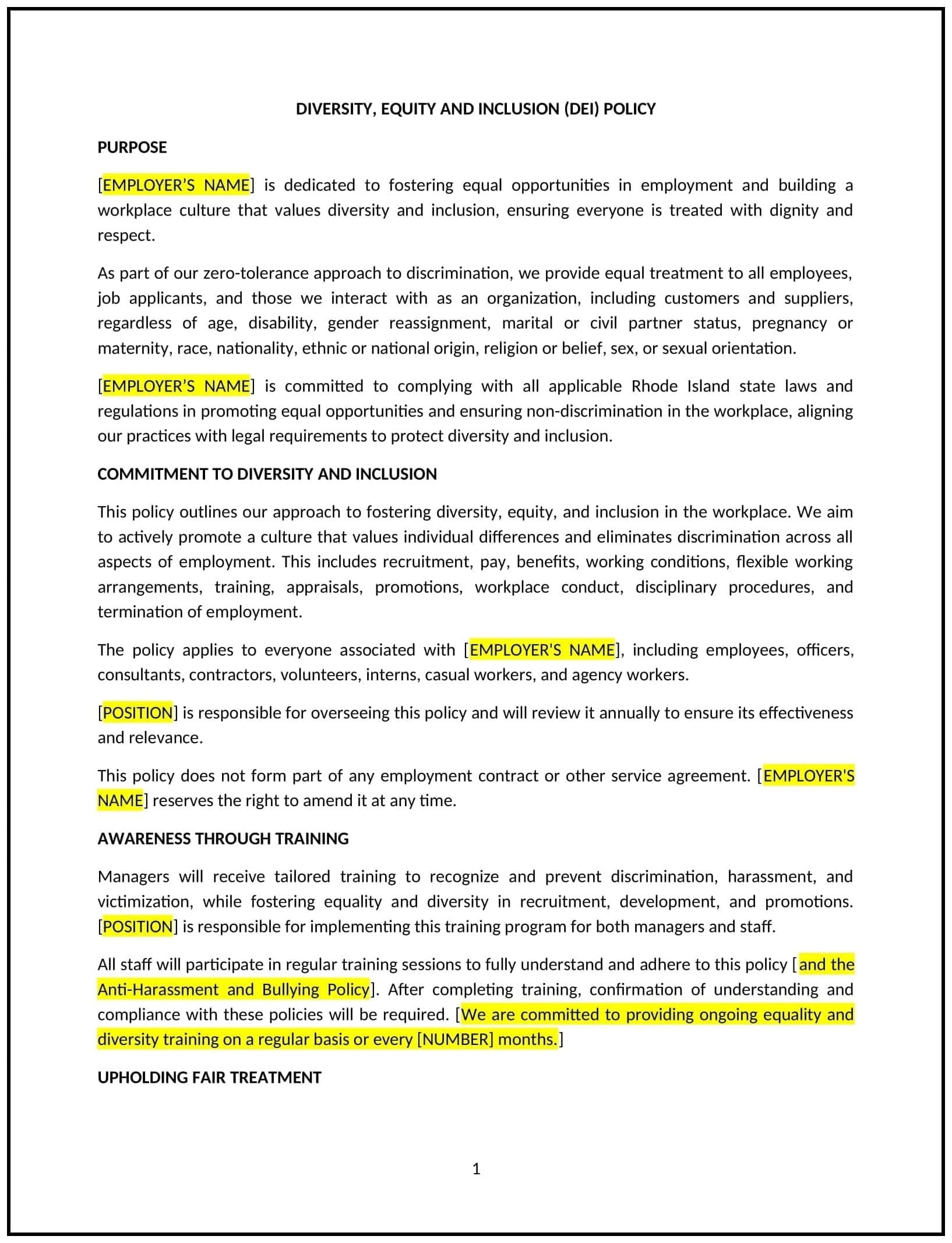Diversity, equity, and inclusion (DEI) policy (Rhode Island): Free template
Got contracts to review? While you're here for policies, let Cobrief make contract review effortless—start your free review now.

Customize this template for free
Diversity, equity, and inclusion (DEI) policy (Rhode Island)
This DEI policy is designed to help Rhode Island businesses foster a diverse, equitable, and inclusive workplace. It outlines commitments to promoting fairness, addressing bias, and supporting underrepresented groups.
By adopting this policy, businesses can enhance employee satisfaction, attract top talent, and align with social responsibility goals.
How to use this DEI policy (Rhode Island)
- Define DEI goals: Specify the business’s commitments to diversity, equity, and inclusion.
- Address bias: Outline steps for identifying and mitigating bias in hiring, promotions, and daily operations.
- Support underrepresented groups: Describe initiatives to support diversity, such as mentorship programs or training.
- Train employees: Educate staff on DEI principles and the importance of inclusivity.
- Review and update: Assess the policy annually to ensure it aligns with evolving business needs and societal expectations.
Benefits of using this DEI policy (Rhode Island)
This policy offers several advantages for Rhode Island businesses:
- Promotes a positive workplace culture: Encourages respect and collaboration among employees.
- Enhances employee satisfaction: Demonstrates a commitment to fairness and inclusivity.
- Attracts top talent: Positions the business as an employer of choice for diverse candidates.
- Reduces legal risks: Aligns with anti-discrimination laws and reduces the risk of non-compliance.
- Aligns with best practices: Supports adherence to DEI standards and industry trends.
Tips for using this DEI policy (Rhode Island)
- Communicate the policy: Share the policy with employees and include it in the employee handbook.
- Provide training: Educate managers on fostering inclusivity and addressing bias.
- Monitor progress: Regularly assess DEI initiatives to ensure they are effective.
- Address issues promptly: Take corrective action if bias or discrimination is reported.
- Update regularly: Assess the policy annually to ensure it aligns with evolving business needs and societal expectations.